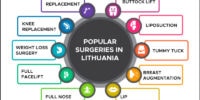Fertility Tourism For Lgbtq+ Couples: Inclusive Family-Building Options

Are you and your partner part of the LGBTQ+ community and looking to start a family? While there may be legal and societal barriers in your home country, fertility tourism offers a range of options for inclusive family-building.
Fertility tourism involves traveling to another country for fertility treatments, surrogacy, or adoption, often in places where laws and cultural attitudes are more supportive of LGBTQ+ couples.
Legal considerations are an important factor in your family-building journey, and fertility tourism can provide access to treatments and options that may not be available in your home country. However, navigating the legal landscape of another country can be challenging, and it’s important to do your research and work with reputable providers to ensure that your rights and the rights of your future child are protected.
In this article, we’ll explore the benefits, challenges, and popular destinations for fertility tourism, as well as provide resources and support for LGBTQ+ couples embarking on this journey.
Key Takeaways
- Fertility tourism provides access to treatments and options that may not be available in a couple’s home country, and can be a more affordable option for LGBTQ+ couples seeking fertility treatments.
- Surrogacy laws and regulations vary greatly from country to country, and LGBTQ+ couples may face challenges when bringing their child back to their home country.
- Adoption, surrogacy, and insemination are all options for family-building, and it’s important for couples to weigh the benefits and drawbacks of each possibility.
- LGBTQ+ Family Building Project provides education, counseling, and support to LGBTQ+ individuals and couples seeking fertility treatments and family-building options.
Understanding Fertility Tourism for LGBTQ+ Couples
Exploring the ins and outs of fertility tourism for LGBTQ+ couples can provide a comprehensive understanding of the inclusive family-building options available.
Fertility tourism refers to the practice of traveling to another country to undergo fertility treatment. LGBTQ+ couples may choose to undergo fertility treatment abroad due to legal or financial barriers in their home country. In some countries, same-sex marriage is not recognized, which limits the options for LGBTQ+ couples to access fertility treatment. Additionally, fertility treatment can be expensive and not covered by insurance.
Fertility tourism offers an opportunity for LGBTQ+ couples to access affordable and legal fertility treatment options. It can also offer a range of family-building options.
The most common fertility treatments include in vitro fertilization (IVF), intrauterine insemination (IUI), and surrogacy. IVF involves fertilizing an egg with sperm outside of the body and then transferring the embryo into the uterus. IUI involves placing sperm directly into the uterus. Surrogacy involves a woman carrying a pregnancy for another person or couple.
Fertility tourism can provide access to these treatments, as well as other options such as egg or sperm donation. Understanding the options available through fertility tourism can empower LGBTQ+ couples to make informed decisions about their family-building journey.
Legal Considerations for Fertility Treatments and Adoption
Navigating the legal requirements for fertility treatments and adoption can be complex, but it’s crucial for LGBTQ+ individuals seeking to start a family. Before embarking on any family-building journey, it’s important to research and understand the legal landscape of your country or state.
In some places, laws and regulations may prohibit certain fertility treatments or adoptions for same-sex couples or individuals. It’s essential to work with a knowledgeable and experienced legal professional who can guide you through the process and ensure that you’re following all necessary legal protocols.
When it comes to fertility treatments, legal considerations may include issues such as parental rights and the legality of surrogacy agreements. Adoption may also involve unique legal challenges for LGBTQ+ individuals, such as discriminatory adoption laws or potential challenges to second-parent adoption.
However, with the help of a legal professional and advocacy groups, it’s possible for LGBTQ+ individuals to navigate these challenges and build the family they’ve always dreamed of. It’s important to remember that legal considerations are just one aspect of the family-building journey, but they’re a crucial step in ensuring that your family is protected and secure.
Benefits and Challenges of Fertility Tourism
You may find it beneficial to consider traveling for fertility treatments, as it can offer unique advantages and challenges that may not be available in your local area.
One of the main benefits of fertility tourism is access to cutting-edge treatments and technologies that may not be available in your home country. For example, some countries may have more lenient regulations on certain fertility treatments, such as surrogacy, which can make it easier for same-sex couples to have a child.
However, there are also some challenges to consider when it comes to fertility tourism. One major challenge is the cost of travel and treatment, which can be prohibitive for some couples. Additionally, there may be language barriers or cultural differences that can make it difficult to navigate the healthcare system in a foreign country.
It’s important to carefully research and choose a reputable clinic or agency before embarking on a fertility tourism journey.
Popular Destinations for Inclusive Family-Building Options
If you’re looking for a great place to start your journey towards building a family, these destinations offer a variety of options for all types of families.
One of the most popular destinations for fertility tourism is Thailand. This country offers both affordable and high-quality medical treatments, as well as a welcoming and inclusive environment for LGBTQ+ couples. Thailand also has a variety of surrogacy agencies that cater to same-sex couples, making it a top choice for those looking to start a family.
Another popular destination for inclusive family-building options is Canada. Canada is known for its progressive policies towards LGBTQ+ rights, and has legalized same-sex marriage and adoption. This makes Canada a welcoming destination for LGBTQ+ couples looking to start a family. Additionally, Canada offers a variety of fertility treatments, including surrogacy and egg donation, making it a great option for couples who may require these services.
With its welcoming environment and variety of family-building options, Canada is a top choice for LGBTQ+ couples.
Accessing Fertility Treatments Abroad
When it comes to accessing fertility treatments abroad, it’s important to do your research and find a reputable clinic that meets your needs and budget. The process of finding the right clinic can be overwhelming, but there are resources available to help you make an informed decision.
One option is to work with a medical tourism agency that specializes in fertility treatments. These agencies can provide you with information about clinics, treatment options, costs, and travel logistics. They can also help you navigate the legal and ethical issues that may arise when accessing fertility treatments abroad.
When selecting a clinic, it’s important to consider factors such as the clinic’s success rates, the qualifications and experience of the medical staff, the availability of donor sperm or eggs, and the clinic’s policies on LGBTQ+ family-building. You should also consider the cost of treatment, including any additional expenses such as travel and accommodations.
It’s a good idea to schedule a consultation with the clinic before making a final decision, so you can ask questions and get a sense of the clinic’s approach to patient care. By doing your due diligence and working with reputable providers, you can access high-quality fertility treatments that may not be available in your home country.
Finding Surrogacy Options in Other Countries
Locating surrogacy possibilities abroad can present legal and ethical difficulties for intended parents. However, with proper research and guidance, finding surrogacy options in other countries can be a viable alternative for LGBTQ+ couples seeking to expand their families.
Here are a few things to keep in mind when considering surrogacy abroad:
- Laws and regulations surrounding surrogacy vary greatly from country to country, so it’s important to thoroughly research the legal landscape of any potential location before pursuing surrogacy there.
- Cultural norms and attitudes towards surrogacy may also differ in other countries, so intended parents should be prepared to navigate potential cultural barriers and differences in communication.
- Working with a reputable agency or fertility clinic that has experience in international surrogacy can help alleviate some of the stress and uncertainty involved in finding a surrogate overseas.
While navigating the logistical and emotional complexities of surrogacy abroad may seem daunting, it’s important to remember that many LGBTQ+ couples have successfully built their families through international surrogacy. With careful planning and support, finding a surrogate in another country can be a positive step towards fulfilling your dream of becoming a parent.
Cost Considerations for Fertility Tourism
You’ll want to keep in mind that the cost of fertility treatments and surrogacy abroad can vary widely, depending on a variety of factors. One of the main considerations is the cost of living in the country you’re considering.
Some countries, such as India and Ukraine, may offer lower costs for fertility treatments and surrogacy, but you’ll also want to factor in the cost of travel, accommodations, and other expenses. Additionally, the cost of surrogacy can vary depending on the agency you choose, as well as the individual surrogate’s compensation.
It’s also important to consider the potential legal and ethical issues that may arise when seeking fertility treatments and surrogacy abroad. Some countries may not have the same legal protections for LGBTQ+ couples or surrogates, and you may face challenges when trying to bring your child back to your home country.
You’ll want to do your research and work with reputable agencies and providers to ensure that your rights and the rights of your surrogate and child are protected. Ultimately, while fertility tourism can be a viable option for LGBTQ+ couples, it’s important to carefully consider all of the costs and potential risks before making a decision.
Support and Resources for LGBTQ+ Couples
Now that you’ve learned about the cost considerations for fertility tourism, it’s time to discuss the support and resources available for LGBTQ+ couples. The journey to building a family can be overwhelming and daunting, especially for those who identify as LGBTQ+. However, there are organizations and groups that provide support and resources to help make the process easier and more inclusive.
One resource available is the LGBTQ+ Family Building Project. This program provides education, counseling, and support to LGBTQ+ individuals and couples who are interested in starting a family. They offer resources such as fertility clinics, adoption agencies, and legal assistance.
Additionally, there are LGBTQ+ family-building conferences and retreats that provide a safe space for individuals and couples to connect with others who are going through similar experiences. These events offer workshops and sessions focused on fertility, adoption, and surrogacy, as well as networking opportunities with professionals in the field.
Remember, you’re not alone in this journey. There are resources and organizations available to support you every step of the way. Don’t hesitate to reach out for help and guidance in building the family of your dreams.
Making Informed Decisions for Your Family-Building Journey
When embarking on your journey to start a family, it’s important to be well-informed and make decisions that align with your values and goals. There are many options available to LGBTQ+ couples seeking to build their families, from adoption to surrogacy to insemination. It’s crucial to do your research and determine which option is the best fit for you and your partner.
To help guide your decision-making process, consider creating a table to compare the different family-building options. In the left column, list the potential options such as adoption, surrogacy, or insemination. In the right column, list the pros and cons of each option. This can help you weigh the benefits and drawbacks of each possibility and make an informed decision about how to proceed with your family-building journey. Remember, ultimately the decision is yours and your partner’s, and it’s important to choose the path that feels right for you both.
Frequently Asked Questions
What are some common medical procedures involved in fertility tourism for LGBTQ+ couples?
You may undergo procedures such as in vitro fertilization (IVF), intrauterine insemination (IUI), and sperm or egg donation for fertility tourism as an LGBTQ+ couple. These treatments can help you achieve your dream of starting a family.
Are there any restrictions on which countries LGBTQ+ couples can travel to for fertility treatments or adoption?
You may face restrictions on which countries you can travel to for fertility treatments or adoption as an LGBTQ+ couple. Some countries have laws prohibiting or limiting these options for same-sex couples.
How can LGBTQ+ couples ensure they are working with reputable fertility clinics or surrogacy agencies abroad?
To ensure you work with reputable fertility clinics or surrogacy agencies abroad, research and ask for referrals. Look for accreditation, experience, and transparency in their processes. Communicate openly and clarify expectations before proceeding.
Are there any cultural sensitivities or legal barriers that LGBTQ+ couples should be aware of when pursuing fertility tourism?
When pursuing fertility tourism, be aware of cultural sensitivities and legal barriers that may affect LGBTQ+ couples. Research local laws and customs, and work with reputable agencies to ensure a smooth and respectful experience.
What kind of emotional and psychological support is available for LGBTQ+ couples undergoing fertility treatments or adoption abroad?
You can expect emotional and psychological support during fertility treatments or adoption abroad. Counseling services and support groups are available. Your healthcare provider can also offer resources and referrals to help you navigate the process.
Conclusion
Congratulations on completing your journey into the world of fertility tourism for LGBTQ+ couples. By now, you should have a comprehensive understanding of the legal considerations, benefits, challenges, and popular destinations for inclusive family-building options.
You’ve also learned about accessing fertility treatments abroad, finding surrogacy options in other countries, and the cost considerations for fertility tourism.
As you move forward in your family-building journey, it’s important to remember that you’re not alone. There are countless resources and support systems available to help you navigate this process.
With careful research, planning, and informed decision-making, you can create the family of your dreams. Remember to trust your instincts, be patient, and have faith that your perfect family is just around the corner.
Good luck!









